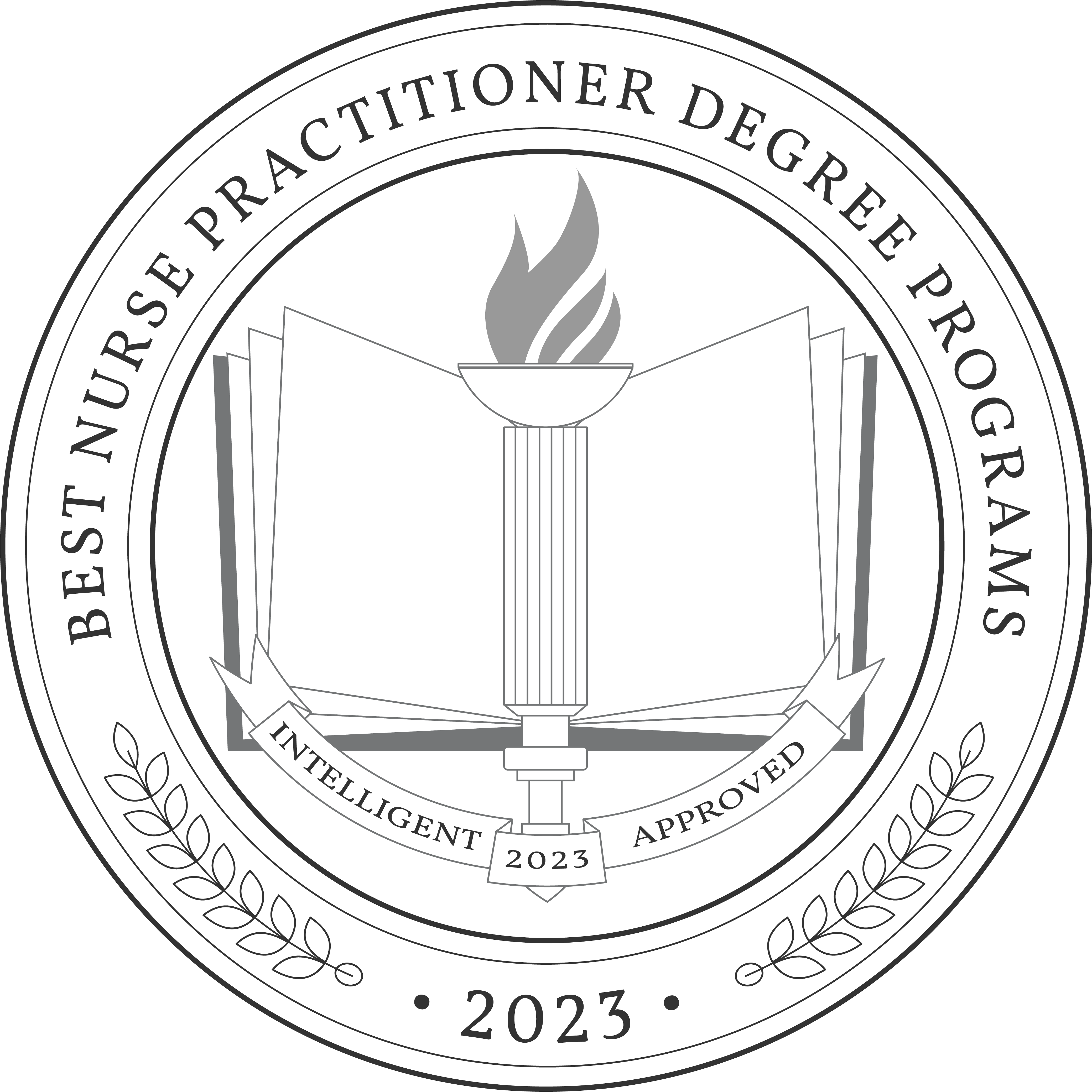Why This Matters
-
DEMAND FOR NURSE PRACTITIONERS IS GROWING RAPIDLY
Jobs for nurse practitioners are projected to grow at a rate of 46% over the next decade due, in part, to an increase in the demand for healthcare services.
-
WORK IN A VARIETY OF SETTINGS
Nurse practitioners work in a variety of settings, including in clinics, hospitals, mental health facilities, operating rooms, schools, and more.
-
EARN $40,000+ MORE PER YEAR WITH A MASTER’S DEGREE
Advanced practice nurses earn $123,780 per year on average, compared with $77,600 for registered nurses.
Our Research
This list focuses on graduate programs in nursing, including master’s degrees, but it also includes some bachelor’s and doctoral-level programs. Most master’s degree programs award a Master of Science in Nursing degree. We reviewed programs that are offered online, in-person, and in hybrid formats.
The Commission on Collegiate Nursing Education (CCNE) accredits bachelor’s, master’s, and residency programs in nursing that meet high standards of quality in nursing education. In addition to CCNE-accredited programs, this list also includes programs accredited by the Accreditation Commission for Education in Nursing (ACEN), which accredits all levels of nursing programs, including doctorate programs. Accreditation ensures that there is quality consistency across programs.
We evaluated each program on the basis of flexibility, faculty, course strength, cost, and reputation. Then we calculated the Intelligent Score for each program on a scale from 0 to 100. For a more extensive explanation, check out Our Ranking Methodology.
The Top 50 Nurse Practitioner Programs

Discover More Options
What You Should Know About This Degree
When considering this career path, it’s important to understand the difference between nurse practitioners and registered nurses. While similar, the qualifications and responsibilities of each position are different.
A registered nurse (RN) needs at least an associate’s degree in nursing from an accredited nursing program. A registered nurse must also obtain a nursing license by passing the National Council Licensure Examination (NCLEX), plus a state license in the state in which they practice. A nurse practitioner (NP) is a type of advanced practice registered nurse (APRN). After obtaining a registered nurse licensure, qualified candidates must also earn a master’s degree from an accredited nursing program to become a nurse practitioner.
Registered nurses and nurse practitioners both collaborate with other healthcare professionals to deliver services to patients, often within a specialization such as cardiology or critical care; however, registered nurses typically provide basic healthcare services to patients, while nurse practitioners deliver advanced medical care. Nurse practitioners also have more autonomy than registered nurses, with some states allowing them independent practice authority or the ability to diagnose and treat patients without supervision from a physician.
What’s Next?
Here are some questions to ask when researching nurse practitioner programs:
- Am I eligible for this program? Most nursing master’s programs require candidates to hold a BSN from an accredited program and to have work experience as a registered nurse; however, some students with a non-nursing baccalaureate degree and an active, registered nurse license may be admitted into a bridge program. Before applying, check the program’s admissions requirements to confirm that you meet the qualifications.
- How long does it take to complete this online degree? The amount of time it takes to complete a master’s degree in nursing depends on several factors. A typical program takes two years to complete, with most students completing 36 to 48 credits.
As you research programs, you should take note of application deadlines. You should also keep track of what application materials you’re required to submit for each program. You can usually find detailed information about the application process on the school’s website or by contacting the admissions department.
Another important consideration is financing your education. The cost to complete a nurse practitioner program varies by program. Many funding opportunities are available, including scholarships, loans, and grants. If you’re currently employed, ask your employer about tuition reimbursement.
